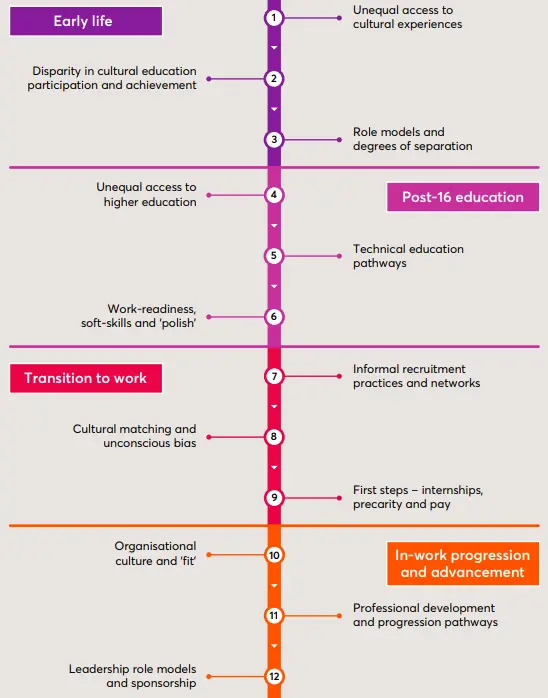Our new research, supported by ScreenSkills with BFI funding, calls for change in the Screen sector
Read the summary of the report
The Screen Industries are a vital and vibrant part of the economy. A key area of competitive advantage for the UK in a post-Brexit era, they contribute over £20bn in GVA and employ over 200,000 people. As part of the wider Digital and Creative Industries, they are acknowledged as central to the Government’s new Plan for Growth. But the sector faces challenges too and one of the greatest relates to diversity. Whether in terms of race, gender, disability, or social class, the Screen Industries are failing to include and support talented individuals from a range of backgrounds and demographic groups.
In August 2020, the PEC published the first report from a series exploring class and social mobility in the UK Creative Industries. The work painted a concerning picture of widespread and persistent class imbalances across all creative industries sub-sectors, with the exception of Craft. New analysis of the 2020 Labour Force Survey data only serves to heighten these concerns.
The research published today was undertaken by the PEC and supported by ScreenSkills with National Lottery funds awarded by the British Film Institute (BFI). It shows that in 2020 over half of people working in the UK’s Screen Industries were from privileged backgrounds (53%), compared to 38% of people working in any role. In contrast, people from working-class backgrounds are significantly under-represented in UK Screen, with only one in four of the Screen workforce from lower socio-economic backgrounds, compared to 38% of people across the economy. It highlights that these class imbalances are particularly pronounced in creative roles, including Writers, Producers, Arts Officers, and Directors. 61% of people in these roles come from privileged backgrounds, making it amongst the most elite occupations in the Creative Industries, or the wider economy.
The study finds 12 points at which people from a working-class background are at a severe disadvantage when it comes to entering and progressing in work in the screen sector. These span early in life, in post-16 education, when entering work, and when in work.

These include agreeing an industry-wide approach to measurement and targets for socio-economic diversity. It calls for more leaders of industry to work collaboratively on this agenda, along with additional information and resources for businesses. The research emphasises that this must go hand-in-hand with attracting and advancing diverse talent, through stronger targeting of careers activities towards social mobility ‘coldspots’, widening access to higher education, and strengthening technical education pathways into the industry.
It also emphasises the need to invest in interventions that support progression to bring forward diverse future leaders, as well as place-based approaches to promote equality, diversity and inclusive growth of creative clusters across the UK. Long-term commitment will be required to effect real change, and subsequent phases of the PEC’s Class in the Creative Industries programme will seek to work with industry to enact change.
Image from Adobe Stock
Related Research Reports
The impact of overseas mergers and acquisitions on UK video games industry
A new scoping study on the economic consequences and potential market failures The BFI’s Resear…
Post-Brexit migration and accessing foreign talent in the Creative Industries
The UK’s departure from the EU has changed the way that British firms trade and work with Euro…
12 facts about the UK’s international trade in creative goods and services
Worldwide exports of creative goods exceeded 500 billion USD in 2015, with a 150% increase since 200…
The migrant and skills needs of creative businesses in the UK
This report details the results of a survey of employers commissioned by the Creative Industries Cou…




